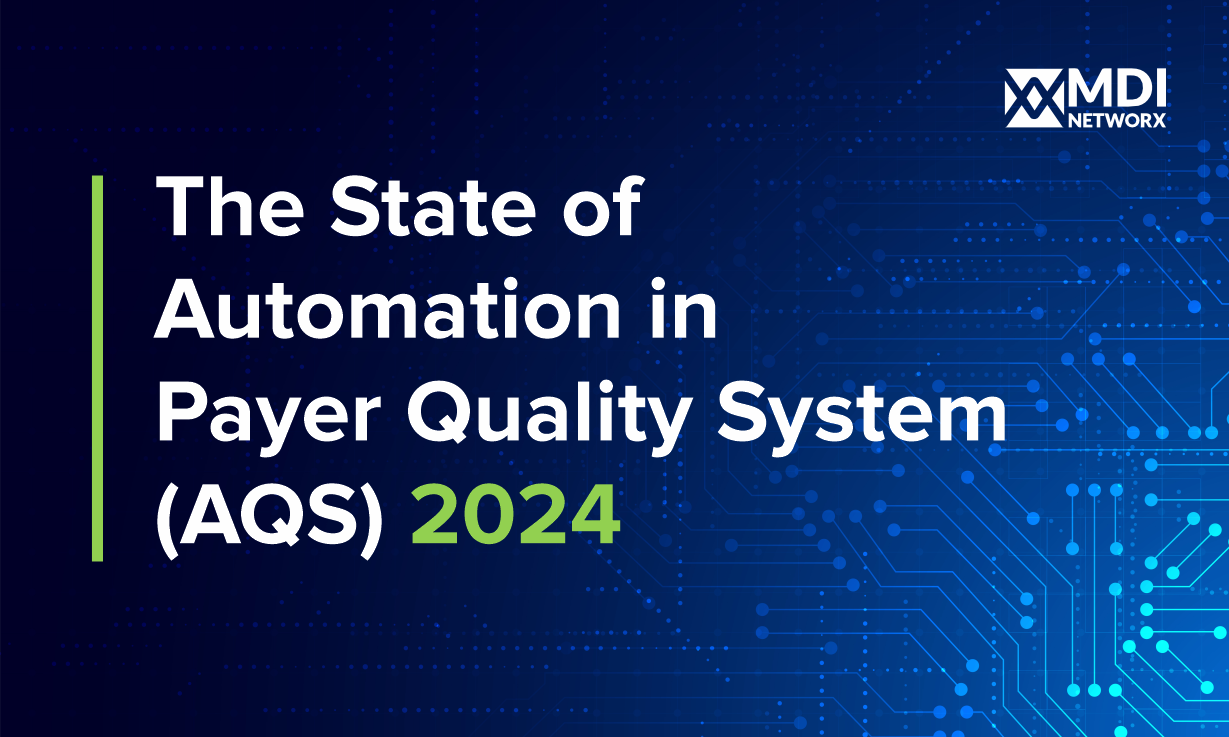To provide the very best to our patients, data quality and accuracy cannot be overstated. Informed decision-making, precise diagnostics, and personalized patient care heavily rely on reliable data. This is where data capture emerges as a pivotal factor, playing a significant role in maintaining accurate patient information.
From medical records to diagnostic test results, data capture serves as the foundation for ensuring data integrity and enhancing patient care outcomes. We dive into the crucial realm of data capture best practices within healthcare organizations, exploring essential methods to ensure data quality and accuracy. By implementing these best practices, healthcare institutions can optimize their data management processes, foster better patient care, and support well-informed decision-making in the pursuit of improved healthcare outcomes.
What Is Data Capture?
Data capture in healthcare refers to the process of capturing, collecting, and recording patient-related information, medical records, test results, and other critical healthcare data. This data is then digitized and organized to ensure easy accessibility and efficient management within healthcare systems. The role of data capture in healthcare data management is pivotal, as it forms the foundation for maintaining accurate and comprehensive patient information.
The link between data capture and patient safety and outcomes is profound. Accurate and timely data capture is essential for making well-informed clinical decisions and providing personalized patient care. Healthcare professionals heavily rely on accurate data to diagnose medical conditions accurately and design appropriate treatment plans tailored to each patient's unique needs. Inaccurate or incomplete data can lead to misdiagnoses, delays in treatment, and potential harm to patients. Thus, data capture plays a vital role in improving patient safety and overall healthcare outcomes.
The importance of accurate healthcare data extends beyond immediate patient care. High-quality data captured during patient encounters is invaluable for medical research, health trends analysis, and disease surveillance. Accurate data serves as the foundation for evidence-based medicine, enabling researchers and policymakers to identify patterns, assess treatment effectiveness, and develop more efficient healthcare practices. Robust and reliable data capture is thus critical for advancing medical knowledge and facilitating medical breakthroughs.
Best Practices for Data Capture in Healthcare
Selecting Appropriate Data Capture Methods for Different Healthcare Data Types
Healthcare organizations deal with diverse types of data, including medical records, test results, prescriptions, and more. Each data type requires a specific data capture method to ensure accuracy and efficiency. For structured data like medical records and test results, electronic data capture forms and standardized templates can be utilized. For unstructured data, such as handwritten notes and medical images, technologies like Optical Character Recognition (OCR) and Intelligent Document Recognition (IDR) are indispensable for converting them into digital formats.
Implementing Data Validation Processes to Ensure Accuracy of Patient Data
Data validation is a critical step in the data capture process to verify the accuracy and completeness of patient data. Implementing validation rules and checks during data entry catches errors in real time. This includes checking for valid dates, numerical ranges, and medical code validity. Data validation ensures that captured information is reliable and free from inconsistencies or inaccuracies.
Utilizing OCR/ICR Solutions for Unstructured Patient Data
Unstructured patient data, such as handwritten notes and medical images, are often complex and difficult to manage. OCR and IDR technologies offer powerful solutions for capturing and extracting relevant information from these unstructured sources. OCR systems can convert handwritten notes into machine-readable text, enabling efficient data analysis and integration into healthcare databases. IDR solutions go beyond OCR by understanding complex documents and extracting relevant data accurately.
Leveraging Automation and Artificial Intelligence (AI) to Reduce Errors in Data Entry and Improve Data Accuracy
Automation and AI play a crucial role in minimizing errors and enhancing data accuracy in healthcare data capture. By automating routine data entry tasks, the likelihood of manual errors is significantly reduced. AI-powered systems can intelligently validate data, identify potential discrepancies, and cross-reference information to ensure consistency and accuracy. Integrating intelligent data capture software streamlines processes and empowers healthcare professionals with reliable data for decision-making.
Integrating Data Capture Solutions Seamlessly with Electronic Health Record (EHR) Systems and Healthcare Workflows
Seamless integration of data capture solutions with existing Electronic Health Record (EHR) systems and healthcare workflows is essential to optimize efficiency. Data capture technologies should complement and enhance the existing healthcare infrastructure without causing disruptions. Integrating data capture solutions with EHR systems enables a comprehensive patient view and real-time updates, supporting better patient care and informed decision-making.
Data Quality Assurance
Maintaining high data quality is paramount in the healthcare industry to ensure accurate diagnoses, effective treatment plans, and patient safety. Data quality assurance encompasses a set of practices aimed at enhancing data accuracy, completeness, and consistency.
Data Cleansing and Normalization Techniques for Consistent Patient Data
Data cleansing involves the identification and correction of errors, inconsistencies, and inaccuracies in the captured data. In healthcare, this process is crucial for removing duplicate patient records, correcting misspellings, and standardizing data formats. Additionally, data normalization ensures that data is transformed into a consistent format, making it easier to compare and analyze patient information across various healthcare systems and facilities.
Addressing Data Duplication and Discrepancies in Medical Records
Healthcare data often originates from multiple sources, leading to potential data duplication and discrepancies. Data quality assurance includes identifying and merging duplicate patient records to create a single, comprehensive view of each patient's medical history. Addressing discrepancies involves cross-referencing information from different sources to ensure data consistency and accuracy. By resolving these issues, healthcare organizations can avoid clinical errors and provide more efficient patient care.
Conducting Data Quality Audits and Regular Monitoring to Identify and Rectify Inaccuracies
Data quality audits involve systematic reviews of healthcare data to assess its accuracy, completeness, and adherence to data standards. Regular monitoring helps identify trends and patterns of data inaccuracies, enabling proactive rectification of data quality issues. By establishing a culture of continuous data quality improvement, healthcare organizations can maintain reliable patient data, leading to improved diagnoses and outcomes.
Training and Empowering Staff
The competence and expertise of data capture operators within the healthcare industry are crucial for ensuring accurate and reliable data. Well-trained data capture operators play a pivotal role in capturing patient information effectively, contributing to improved patient care and better healthcare outcomes.
Importance of Well-Trained Data Capture Operators in Healthcare Settings
Data capture operators serve as the frontline of healthcare data management. Their role involves accurately capturing patient information, ensuring data quality, and maintaining data integrity. Well-trained operators possess the necessary skills to navigate complex data capture processes and handle various data types, including medical records, test results, and prescriptions. The expertise of data capture operators directly impacts the accuracy and reliability of patient data, making them indispensable assets to healthcare organizations.
Providing Continuous Training on Data Capture Best Practices and Medical Terminology
The healthcare industry is continually evolving, and data capture practices need to keep pace with the changes. Providing continuous training on data capture best practices and medical terminology is essential to ensure that staff are well informed and up-to-date with the latest standards and protocols. Regular training sessions can include data validation techniques, data cleansing processes, and the correct usage of data capture tools. Keeping data capture operators informed and knowledgeable empowers them to maintain data accuracy and uphold data quality standards.
Encouraging Attention to Detail and a Patient-Centric Data Accuracy Mindset
Attention to detail is a critical attribute of effective data capture operators. Healthcare data capture often involves dealing with vast amounts of patient information, and even minor errors can have significant consequences. Encouraging a patient-centric data accuracy mindset emphasizes the importance of every data point in patient care. Data capture operators must understand the impact of their work on clinical decisions and patient outcomes, inspiring them to be diligent in their duties.
Data Security and Privacy Considerations
Data security and privacy are paramount in the healthcare industry, where sensitive patient information is continuously captured and managed. To safeguard patient data and maintain trust, healthcare organizations must adhere to robust data security and privacy practices when implementing data intelligence in healthcare.
Implementing Secure Data Capture Processes to Protect Sensitive Patient Information
Healthcare data capture processes should be designed with security in mind from the outset. Implementing secure data capture measures involves utilizing encryption to safeguard information while it is being transferred and stored virtually. Access controls and authentication mechanisms ensure that only authorized personnel can access patient information. Data capture systems should be regularly updated and patched to prevent vulnerabilities that could be exploited by malicious actors.
Complying with Healthcare Data Protection Regulations (e.g., HIPAA) and Industry Standards
Compliance with HIPAA regulations is essential to maintain patient confidentiality and privacy. Healthcare organizations must establish policies and procedures that align with HIPAA and other applicable regulations to ensure the lawful and ethical handling of patient data during the capture process.
Ensuring Confidentiality and Privacy of Patient Data During the Capture and Storage Process
Confidentiality and privacy of patient data must be upheld throughout the data capture and storage lifecycle. Data capture operators should be trained to handle patient information responsibly, with strict adherence to data privacy policies. When storing captured data, secure data repositories, firewalls, and access controls must be in place to prevent unauthorized access or breaches. Regular audits and monitoring of data access help identify and address any potential security breaches promptly.
Ensuring Data Accuracy in Patient Care and Medical Billing
Accurate data capture plays a pivotal role in enhancing patient care and optimizing medical billing processes within the healthcare industry.
Improving Patient Records Management through Accurate Data Capture
Data accuracy is essential for creating comprehensive and up-to-date patient records. With an intelligent data capture service, healthcare providers can ensure that patient information, medical history, and treatment plans are complete and error-free. Reliable patient records facilitate seamless communication among healthcare professionals, enabling them to make informed decisions and provide personalized care. Access to accurate patient data also expedites diagnosis and treatment, resulting in improved patient outcomes.
Streamlining Medical Billing Processes with Error-Free Data Entry
Inaccuracies in medical billing data can lead to claim denials, delayed reimbursements, and financial losses for healthcare organizations. By implementing accurate data capture practices, such as automated data entry and validation, medical billing processes become more streamlined and error-free. Automated validation of billing data ensures that claims are correctly coded and comply with insurance requirements, reducing the likelihood of claim rejections. This leads to faster reimbursement cycles and improved cash flow for healthcare providers.
Enhancing Clinical Decision-Making and Treatment Plans through Reliable Patient Information
Reliable patient data captured through accurate data capture processes is instrumental in facilitating clinical decision-making. Healthcare professionals heavily rely on accurate patient information to diagnose medical conditions, design treatment plans, and monitor patient progress. With precise and up-to-date data, clinicians can make well-informed decisions, leading to more effective treatments and better patient outcomes. Additionally, reliable patient information allows for better care coordination among interdisciplinary healthcare teams, resulting in improved patient care and reduced medical errors.
Measuring and Improving Data Quality
Data quality is of utmost importance to ensure accurate diagnoses, effective treatment plans, and patient safety. Measuring and improving data quality in healthcare data capture is a continuous process that involves regular review and appropriate action to generate improvements.
Metrics to Assess Data Quality and Accuracy in Healthcare Data Capture
Healthcare organizations can use various metrics to evaluate the quality and accuracy of data captured during the data entry process. Some essential data quality metrics include data completeness (the percentage of required fields that are filled), data accuracy (the level of correctness of the captured data), and data consistency (the extent to which data conforms to defined standards). Additionally, measuring data timeliness (the frequency of updating data) and data relevancy (the extent to which data is pertinent to the context) helps ensure that data remains relevant and up-to-date.
Identifying Areas for Improvement and Optimizing Data Capture Processes
Analyzing data quality metrics can reveal areas that require improvement in the data capture process. Frequent errors, data gaps, or inconsistencies can be identified through data audits and regular monitoring. Based on these insights, healthcare organizations can implement corrective measures, such as providing additional training to data capture operators or refining data validation procedures. Continuous assessment and optimization of data capture processes lead to enhanced data accuracy and overall data quality.
Implementing Feedback Loops for Continuous Data Quality Enhancement
Feedback loops are essential for continuous data quality enhancement. Healthcare organizations should encourage data capture operators and healthcare professionals to provide feedback on data quality issues they encounter during their work. Feedback from end-users helps identify data capture challenges and potential areas for improvement. This information can then be used to update data capture tools and processes, fine-tuning them to ensure reliable data capture.
Improve Quality and Accuracy By Implementing Data Capture Solutions
Data quality and accuracy are the cornerstones of effective healthcare data capture, profoundly impacting patient care, medical research, and overall operational efficiency. Through the adoption of data capture best practices, healthcare organizations can elevate their data management processes to new heights, ensuring reliable patient information that forms the basis for well-informed clinical decisions.
Adhering to methods such as selecting appropriate data capture methods, implementing data validation processes, leveraging advanced technologies like OCR and AI, and prioritizing staff training can help healthcare institutions enhance data integrity and optimize patient care. Embracing these practices enables healthcare professionals to rely on accurate data, leading to improved patient outcomes and more effective healthcare strategies. In the pursuit of delivering high-quality, patient-centric care, healthcare organizations must adopt these data-capture best practices to build a data-driven culture that fosters innovation, improves patient care, and supports informed decision-making throughout the healthcare industry.




